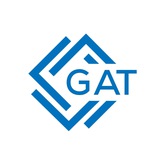tg-me.com/GAT_Tutorial/123
Last Update:
The National Graduate Admission Test (NGAT) evaluates candidates on three main cognitive skills: verbal reasoning, quantitative reasoning, and analytical reasoning. Here's what each of them entails:
1. Verbal Reasoning
✔️ Measures the ability to understand, analyze, and interpret written material.
✔️ Involves identifying relationships between words, understanding logical arguments, and evaluating written passages.
• Example question types:
✅ Reading comprehension (answering questions about a passage)
✅ Sentence completion (choosing the correct word/phrase)
✅ Analogies (finding word relationships)
2. Quantitative Reasoning
✔️ Assesses numerical problem-solving skills and mathematical reasoning.
✔️Tests knowledge of arithmetic, algebra, geometry, and data analysis.
• Example question types:
👉 Solving equations and inequalities
👉 Interpreting graphs and charts
👉 Word problems involving percentages, ratios, and probability
3. Analytical Reasoning
✔️Evaluates logical thinking and the ability to analyze complex scenarios.
✔️Involves recognizing patterns, drawing conclusions, and solving logical puzzles.
Example question types:
👉Logical sequences (identifying the next step in a pattern)
👉Syllogisms (deductive reasoning problems)
👉Arrangements and puzzles (ordering items based on given conditions)
Each of these sections requires critical thinking and practice. Let me know if you need sample questions or strategies to improve in any of these areas!
@GAT_Tutorial
Registeration for Tutorial is Open
@GATtutorialbot
BY GAT Tutorial Official
Warning: Undefined variable $i in /var/www/tg-me/post.php on line 283
Share with your friend now:
tg-me.com/GAT_Tutorial/123
